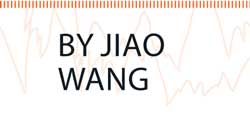Reply To:
Name - Reply Comment

 On May 24, 2017, Moody’s Investors Service cut China’s long-term local currency and foreign currency issuer ratings from Aa3 to A1 and changed the outlook of the Chinese economy from negative to stable. Moody’s is not a teacher handing out report cards, but the feeling from losing ‘straight As’ is the same — unpleasant.
On May 24, 2017, Moody’s Investors Service cut China’s long-term local currency and foreign currency issuer ratings from Aa3 to A1 and changed the outlook of the Chinese economy from negative to stable. Moody’s is not a teacher handing out report cards, but the feeling from losing ‘straight As’ is the same — unpleasant.
The reaction from the Chinese Finance Ministry says it all. In an interview released on the same day as the ratings, the ministry criticised the inappropriateness of the ratings and said that Moody’s overestimated the difficulties the government needed to overcome. They also said that Moody’s underestimated the capacity of the government to deepen structural reform and boost aggregate demand.
Moody’s ratings are based on an assessment of four main factors: economic strength, institutional strength, fiscal strength and susceptibility to even risk. The downgrade largely reflected concern about the erosion of China’s financial strength ‘with economy-wide debt continuing to rise as potential growth slows’.
The worry about continuously rising debt is closely linked to the official growth targets set by the Chinese government in the 13th Five-Year Plan. Per capita income is expected to double from its 2010 figure by 2020. The importance that Beijing attaches to achieving this target led Moody’s to the view that further stimulus will be applied to prop up growth and that expansive fiscal policy will likely be deployed to achieve that goal.
The Finance Ministry disagrees with this assessment and attributes it to a lack of knowledge of Chinese Budget Law. By law, local and regional governments are not responsible for the liabilities of Local Government Financial Vehicles (LGFVs) or state-owned enterprises beyond their own equity in them. So in the view of the Finance Ministry, it is wrong to include them as indirect government debt that points to a rising debt problem.
It’s hard to foresee whether default of corporate debts belonging to the LGFVs and state-owned enterprises is a real possibility, since such an event hasn’t yet occurred. It’s also hard to be sure about the claim that central and local government will not bail out any LGFVs or state-owned enterprises, especially when the economic and social implications are factored in. But market sentiment about the close connection between local governments and corporate entities is clearly negative and could be even more so with rising corporate debt in the years to come.
The change in the outlook for the economy from negative to stable is the best part of the downgrading release for China, indicating that the deepening of structural reform and induced economic growth are expected to lead to a balanced path between risks and prosperity, albeit under the A1 rating.
Since 2010, when gross domestic product (GDP) growth dropped from double to single digits, the world has gradually become accustomed to the structural slow-down of the Chinese economy. The Belt and Road Initiative and the anticorruption campaign have earned the Xi leadership credit for determination and capacity, whatever uncertainties surround them both. It is not unreasonable to expect Beijing to steer through so-called supply-side structural reform in the years to come.
Continuing reform, with its resulting improvements in the quality of growth and effective transformation of China’s economic structure hold the key to reassuring both the market and the public about the prospects of success. They are also fundamental to whether China continues to thrive and grow in influence, as well as to the political legitimacy of the Chinese leadership.
The challenge will be to deliver the benefits of reform without pumping up the economy again. The priorities need to be set correctly. That means prioritising reform over growth. This will not be easy in an environment where meeting official targets still seems so patriotic.
Strengthening economic fundamentals through deeper economic reform can help anchor public sentiment in the event of temporary setbacks or challenges. Injudicious use of policy stimulus to meet growth targets would delay or imperil reform. Without strong economic fundamentals backed by deepened reform, negative market sentiment — as well as debt problems and risks — are likely emerge more quickly.
(Courtesy East Asia Forum)
(Jiao Wang is a research fellow of the Melbourne Institute of Applied Economic and Social Research at the University of Melbourne)